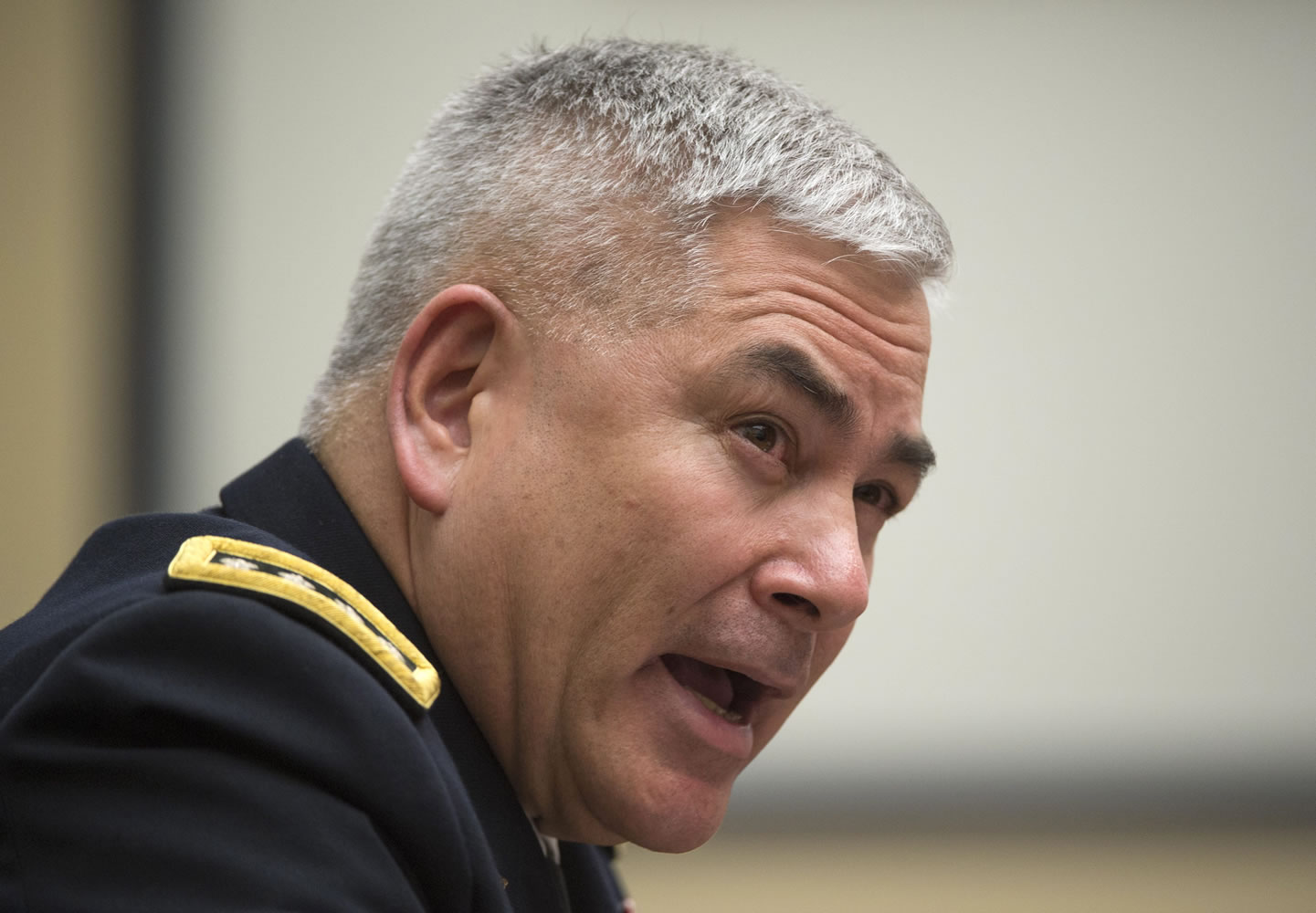WASHINGTON — The ability to train and advise the still-green Afghan security forces will be constrained if the U.S. troop level is cut to 5,500, as President Barack Obama has proposed, the senior American commander in Afghanistan said Thursday.
Army Gen. John Campbell told the Senate Armed Services Committee that “very little” training will be done with fewer U.S. forces.
Campbell, who is expected to retire soon, sparred with the committee’s chairman, Sen. John McCain, R- Arizona, and other senators over troop reductions.
McCain, one of Obama’s harshest critics on national security issues, asked if the troop number is adequate to perform the training mission and counterterrorism operations, as Obama proposed. Campbell said much will depend on how quickly the Afghan forces improve. If they don’t, he said, the number of American troops will likely need to increase.
But Campbell said he is preparing to go down to 5,500 “as I am ordered.” He said the decision to withdraw troops was a policy decision, not a military one.
Campbell acknowledged that publicly revealing the troop cuts could allow the enemy to “wait us out.” At the same time, he said, openly debating and disagreeing with the decision “hurts us, as well.”
McCain said it’s unrealistic to expect a reduced force to handle the dual mission of training the Afghans and counterterrorism.
Initially, Obama said he would trim the U.S. force in Afghanistan to 5,500 troops by the end of 2015, and then down to 1,000 by the end of 2016. But Obama backtracked, saying the situation remained too fragile for such a rapid withdrawal.
The current U.S. force of about 9,800 would stay in place through most of this year, Obama said in October. The reduction to 5,500 would occur “by the end of 2016,” Obama said, although he didn’t specify when. The smaller force would be expected to handle training the Afghans and counterterrorism.
“I want to keep 9,800 as long as I can before I drop down to 5,500,” Campbell said.
Sen. Jack Reed, D-R.I., the committee’s ranking Democrat, agreed with McCain that any further withdrawals of U.S. troops should be based on the situation in Afghanistan.
Reed also said he wants to hear from the officer Obama selected to replace Campbell as the U.S. commander in Afghanistan, Army Lt. Gen. John Nicholson Jr. During a hearing last week, Nicholson said he would immediately conduct a rigorous assessment of troop requirements. Reed said Nicholson’s review should be given “extraordinary weight.”
The committee approved Nicholson’s selection Thursday, and the full Senate backed the nomination on a voice vote later in the day.
Obama’s critics said leaving the Afghans without enough U.S. trainers would imperil the gains made since 2002, when the U.S. committed to rebuilding the country. Nearly $64 billion has been allotted so far for training and equipping the Afghan army and police.
Yet patience among other lawmakers is fraying with the finish line so far away.



